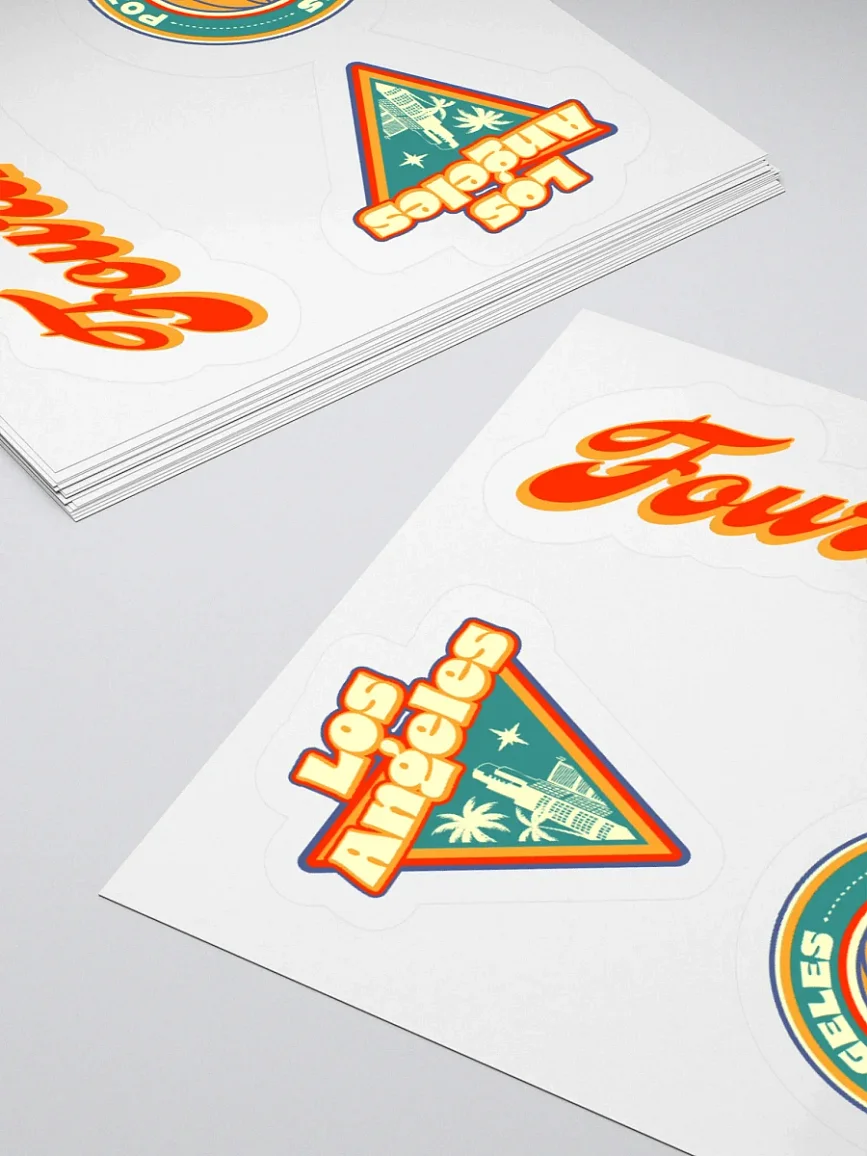Best Merchandising Strategies to Sell Your Products

In the competitive world of e-commerce, where countless brands vie for the attention of consumers, standing out amidst the noise has become a daunting challenge for both merchandisers and creators seeking to carve their niche and establish a thriving online presence.
As such, finding innovative strategies to captivate audiences, drive engagement, and ultimately boost sales has become necessary for content creators striving to promote and sell their own products online.
In this article, we invite you to join us on an enlightening journey as we delve deep into the heart of merchandising—an art form that transcends mere commerce. From crafting compelling product offerings to implementing strategic marketing tactics, this article will help you gain valuable insights while unleashing the full potential of your online store.
What Is Merchandising?
Merchandising is a strategic approach to marketing and sales that involves promoting and selling products or services. This comprehensive process includes a few key elements, each crucial to successfully bringing a product to market and appealing to your target audience.
Product Creation and Display
Merchandising begins with the creation of a product that resonates with your target audience. Whether physical or digital, the product's design, features, and pricing must align with the preferences and budget of your followers.
Once the product is developed, the next step is to showcase it attractively on your e-commerce platform. Engaging product descriptions, high-quality images, and informative videos are essential to provide potential buyers with a clear understanding of what they are purchasing.
Promotion and Packaging
Effective promotion is crucial for capturing the attention of your target audience. Use various channels, such as social media, email marketing, and influencer partnerships, to reach and engage potential customers.
Additionally, packaging plays a significant role in merchandising. It not only creates a positive first impression but also communicates your brand's value proposition. Visually appealing and functional packaging that protects the product during shipping enhances the overall customer experience, encouraging repeat purchases and brand loyalty.
By mastering these elements, creators can effectively market their products, enhance customer satisfaction, and drive sales growth.
Why Should You Merchandise?
Merchandising offers several benefits for content creators who want to maximize their sales and revenue. Let's take a closer look at some of these benefits:
Diversification of Revenue Streams
Diversification of revenue streams through merchandising offers creators the opportunity to expand their income beyond traditional channels by creating products that complement their existing content.
For instance, a blogger can leverage their expertise and audience trust to develop supplementary offerings like e-books or online courses that delve deeper into the topics covered in their blog posts.
These additional products not only provide added value to the audience but also open up new avenues for revenue generation. Similarly, creators can explore merchandise such as branded merchandise, digital downloads, or subscription-based services tailored to their niche and audience preferences.
By diversifying their revenue streams in this way, creators can reduce reliance on any single source of income, mitigate risk, and unlock potential for greater financial stability and growth.
Building a Stronger Fan Community
Merchandising is a powerful tool for building a stronger fan community. It creates meaningful touchpoints between creators and their audiences that extend beyond their content.
When fans purchase products offered by their favorite creators, it fosters a sense of connection and belonging to the creator's brand. This tangible interaction allows fans to become active participants in the creator's journey, further solidifying their bond.
For example, when a fan wears a creator's branded merchandise or displays their artwork in their home, it serves as a constant reminder of their admiration and support for the creator. This emotional connection leads to increased engagement, as fans are more likely to interact with and share content from creators they feel connected to.
Brand Extension and Recognition
By offering a range of merchandise that embodies the essence of your brand, you can create tangible touchpoints that resonate with your audience on a deeper level.
For example, a creator known for their vibrant and whimsical artwork might extend their brand through merchandise such as clothing, accessories, or home decor featuring their distinctive designs. As fans integrate these products into their daily lives, they become walking ambassadors for the brand, increasing its visibility and reach.
Additionally, consistent branding across merchandise reinforces brand recognition, making it easier for audiences to identify and connect with the creator's content across various platforms. The more recognizable a brand becomes, the more likely audiences are to engage with and purchase its products, leading to increased loyalty and support.
Through strategic merchandising, creators can leverage brand extension to strengthen their presence in the market, cultivate a loyal fan base, and drive long-term success.
Monetizing Audience Engagement
When audiences engage with your content—whether through likes, comments, shares, or other interactions—it signifies a connection with your brand and a willingness to invest in what you offer.
Creators can capitalize on engagement and convert it into revenue by offering merchandise that aligns with their audience's interests, preferences, and needs.
For instance, if a beauty influencer receives high engagement on makeup tutorials, they might create their own line of cosmetics or collaborate with existing brands to offer exclusive products tailored to their audience's preferences.
Similarly, a gaming YouTuber might design merchandise featuring their logo or favorite gaming characters to appeal to their dedicated fan base.
By understanding their audience's interests and creating products that resonate with them, creators can effectively monetize their engagement and transform their loyal followers into paying customers.
8 Merchandising Strategies to Help Boost Sales
1. Have a Clean Design
Having a clean design is crucial for attracting and retaining customers, as the visual appeal of a product or website can significantly influence purchasing decisions.
A clean design is characterized by simplicity, clarity, and aesthetic appeal, which helps create a positive first impression. For example, a website with an uncluttered layout, easy-to-read fonts, and high-quality images of merchandise will likely engage visitors more effectively than a chaotic, cluttered site.
Similarly, sleek and well-designed product packaging can stand out on crowded shelves or in online marketplaces, drawing the attention of potential buyers. Clean design also enhances user experience by making navigation intuitive and information easily accessible, which can reduce bounce rates and increase conversion rates.
By prioritizing clean and visually appealing design, creators can effectively market their products, enhance brand perception, and ultimately drive higher sales.
.webp)
2. Targeted Social Media Promotion
Targeted promotions on social media allow creators to effectively reach and engage potential customers who are most likely to purchase their products.
By leveraging platforms like Instagram, Facebook, and TikTok, creators can use advanced targeting options to focus on specific demographics such as age, gender, location, interests, and behaviors. For example, a creator selling eco-friendly products can target environmentally conscious users or groups interested in sustainability.
Additionally, using features like Instagram Stories, Facebook Ads, and TikTok Challenges allows creators to create engaging and interactive content that resonates with their audience. By analyzing metrics and adjusting campaigns based on performance, they can continually refine their approach to maximize reach and conversion rates.
This precise targeting not only increases the efficiency of marketing efforts but also enhances the return on investment, as promotions are shown to users who are more likely to be interested in the products, leading to higher engagement and sales.
3. Product Integrations
Product integrations allow creators to seamlessly incorporate their merchandise into their content, showcasing products to potential customers in a natural and engaging way.
For instance, a fitness influencer can wear and demonstrate their branded workout gear during exercise tutorials, effectively highlighting the products' functionality and appeal. Similarly, a beauty vlogger can use their makeup line in tutorials, providing real-time demonstrations of the product's benefits and results.
This approach not only boosts product visibility but also builds trust, as followers see the creator genuinely using and endorsing the products. Additionally, creators can incorporate products into storytelling or lifestyle content, such as featuring home decor items in room tours or cooking with branded kitchenware in recipe videos.
By integrating products organically into their content, creators can create authentic and compelling narratives that resonate with their audience, driving interest and encouraging purchases.
4. Behind-the-Scenes Content
Sharing behind-the-scenes content can generate excitement and anticipation for new releases as followers get sneak peeks and exclusive previews. By sharing the story behind the products, creators can engage their audience on a personal level, making them feel like part of the journey.
For example, a fashion designer might share videos of a new product design and the different stages during production, allowing followers to see the craftsmanship and effort that goes into each piece.
On the other hand, a musician could post clips from recording sessions or rehearsals, giving fans insight into the creative process. This transparency not only humanizes the creator but also adds value to the products, as fans appreciate the authenticity and effort behind them.
This approach not only strengthens the bond between creators and their audience but also builds loyalty and encourages purchases, as fans feel more connected to and invested in the creator’s work.
5. Fan-Generated Content
Encouraging fan-generated content can significantly enhance community building around a brand, as it empowers fans to become active participants and promoters of the product.
When fans create and share their own content, such as unboxing videos, reviews, or creative uses of the products, they act as brand evangelists, organically expanding the brand's reach.
For instance, a skincare brand might encourage customers to post before-and-after photos or skincare routines using their products, which can be shared on social media platforms with branded hashtags.
Fan-generated content not only provides authentic testimonials to your products but also builds a sense of community and belonging among fans who share similar interests.
6. Limited Edition or Exclusive Products
Offering limited edition or exclusive products is an effective strategy to create a sense of urgency and exclusivity, driving higher sales and engagement.
When products are available for a limited time or in restricted quantities, it triggers a fear of missing out (FOMO) among potential customers, compelling them to make quicker purchasing decisions.
For example, a content creator might release a limited-edition version of their merchandise, such as a uniquely designed T-shirt or a seasonal sweatshirt, available only for a short period or in a specific quantity.
This exclusivity makes the product more desirable, as fans perceive it as a rare opportunity to own something special. Additionally, promoting these limited offers through countdowns, special events, or early access for loyal followers can further enhance the sense of urgency.
7. Offer Memberships
Offering memberships is an effective strategy for generating recurring revenue from dedicated supporters by providing them with exclusive value and benefits.
With platforms like Fourthwall, content creators can easily set up membership programs that offer unique perks such as exclusive content, special discounts, early access to new merchandise, and behind-the-scenes glimpses.
For instance, a creator might offer members-only videos, personalized shoutouts, or live Q&A sessions. These exclusive benefits make members feel appreciated and part of an inner circle, fostering a deeper connection and loyalty to the creator.
Membership programs not only provide a steady stream of income but also help in building a strong, engaged community.
By continuously offering new and exciting benefits, creators can maintain high membership retention rates and attract new subscribers, ensuring long-term financial stability and growth.

8. Contests and Giveaways
Contests and giveaways are powerful tools for increasing followers and boosting engagement on social media. By incentivizing participation with attractive prizes, merchandisers can encourage fans to interact with their content and share it within their networks, thereby expanding their reach.
For example, a creator might run a giveaway where participants must follow their account, like a post, and tag friends to enter, or a contest where fans submit creative entries related to the creator's brand or products.
These activities not only increase visibility but also foster community involvement and excitement around the brand. Moreover, the buzz generated by these events can attract new followers who are introduced to the creator’s content and merchandise through the promotion.
By regularly hosting contests and giveaways, creators can maintain high levels of engagement, reward loyal fans, and continuously introduce their products to a broader audience, ultimately driving more sales and growing their fan base.
Frequently Asked Questions
What are the types of merchandising companies?
Merchandising companies can be categorized into three types: manufacturers, wholesalers, and retailers. Each type serves a different role in the merchandising process. Manufacturers produce the products, wholesalers distribute them to retailers, and retailers sell them to consumers.
What are the 5 P's of merchandising?
The five Ps of merchandising includes product, price, promotion, place, and positioning. These elements are critical in creating an effective merchandising strategy. Creators should focus on creating quality products, setting competitive prices, promoting products through various channels, selecting the best sales channels (whether e-commerce or brick-and-mortar stores), and positioning their products against the competition.
What is the difference between a merchandising and a service Company?
A merchandising company focuses on selling products through various channels. In contrast, a service company offers services as their primary revenue stream. A service company typically does not have physical products to sell and instead earns revenue through the provision of services.
Merchandise Your Products With Fourthwall!
Fourthwall is a comprehensive solution for content creators seeking efficient merchandising. It provides built-in shop functionality for seamlessly designing and uploading products, managing inventory, and setting prices.
Integrated with a print-on-demand service, Fourthwall streamlines production and fulfillment, simplifying the merchandising process. Creators can customize merchandise from a diverse catalog, including t-shirts, phone cases, and stickers. This fosters brand establishment and community building through engagement features like memberships, chat, and live streaming.
Whether you're a seasoned creator looking to expand your merchandise offerings or just starting out on your merchandising journey, Fourthwall offers the tools and support you need to elevate your brand and maximize your revenue potential. Embrace the future of merchandising and unlock endless possibilities for your online store—join Fourthwall today!
















